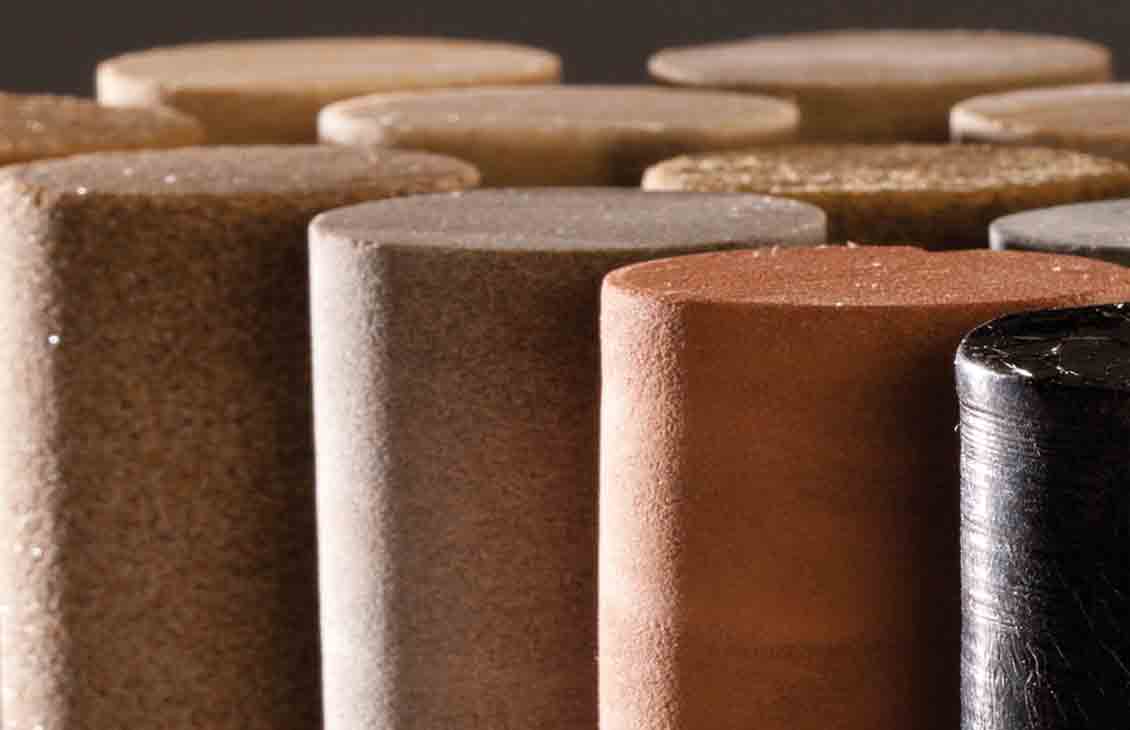JIS M 0301 Testing Methods for Porosity and Density of Rock Cores
The JIS M 0301 standard is an essential tool in the oil & gas testing sector, specifically addressing the measurement of porosity and density within rock cores. This method is crucial for understanding reservoir properties, which directly impacts hydrocarbon recovery efficiency and overall production performance.
Porosity refers to the void space within a rock formation that can potentially hold fluids such as oil, natural gas, or water. Density measures how compactly matter is packed into a given volume of material. Accurate measurement of these parameters is vital for assessing reservoir quality, predicting fluid flow behavior, and optimizing drilling operations.
The JIS M 0301 protocol involves several key steps to ensure precise measurements:
- Sample preparation: Rock cores are cut into specific sizes and shapes that fit the required equipment.
- Dry weight determination: The sample is weighed in its dry state to establish a baseline for density calculations.
- Saturation with fluid: The core is saturated with a specific liquid, typically water or oil, depending on the target application.
- Total weight measurement: After saturation, the total weight of the sample and fluid combination is measured.
- Porosity calculation: Using the dry and total weights, porosity can be calculated using the formula Porosity = (Total Weight - Dry Weight) / Total Weight.
- Density measurement: The density of both the rock sample alone and the saturated state is determined.
The precision of these measurements influences critical decisions in reservoir engineering, such as determining optimal well placement and drilling depths. Understanding porosity and density helps engineers tailor their strategies to maximize resource extraction while minimizing environmental impact.
| Parameter | Description |
|---|---|
| Dry Weight | The weight of the rock core in its initial state, measured before any fluid is added. This establishes a baseline for subsequent calculations. |
| Total Weight | The combined weight of the saturated sample and the fluid used for saturation. This value is crucial for calculating porosity and density accurately. |
| Porosity | A measure of the void space within the rock, expressed as a percentage. It indicates the potential capacity of the core to hold fluids. |
| Density | The mass per unit volume, which helps in understanding the compactness and composition of the rock sample. |
Understanding these parameters through JIS M 0301 testing is fundamental for quality managers, compliance officers, and R&D engineers. These professionals rely on accurate measurements to ensure that their processes meet regulatory standards and industry best practices. Proper adherence to this protocol helps in making informed decisions that enhance operational efficiency.
Why It Matters
The importance of JIS M 0301 testing cannot be overstated, especially within the oil & gas sector where reservoir properties significantly influence production capabilities. Accurate measurements of porosity and density are essential for several reasons:
- Enhanced Recovery Efficiency: By understanding the distribution of void spaces in rock cores, engineers can design wells that target high-porosity zones, thereby increasing oil recovery rates.
- Environmental Impact Reduction: Precise porosity and density measurements help in optimizing extraction processes to minimize environmental damage. This is particularly important for ensuring sustainable practices.
- Cost Management: Accurate testing reduces the risk of costly mistakes, such as drilling into low-porosity zones where hydrocarbons are scarce.
- Predictive Modeling: The data obtained from JIS M 0301 tests contribute to predictive models that forecast reservoir performance and future production trends.
In essence, these measurements are the foundation upon which sound decision-making in oil & gas exploration and production is built. They ensure that resources are utilized efficiently while adhering to stringent quality control measures.
Applied Standards
| Standard | Description |
|---|---|
| JIS M 0301 | This standard provides detailed procedures for determining the porosity and density of rock cores. It ensures consistency in testing methods across various laboratories. |
| ASTM D 5674 | An additional American Society for Testing and Materials standard that complements JIS M 0301 by offering supplementary methods for similar measurements. |
The application of these standards ensures uniformity in testing protocols, which is critical for comparing results across different laboratories. This consistency enhances the reliability of data generated from porosity and density tests, thereby supporting robust decision-making processes in the oil & gas industry.
Eurolab Advantages
At Eurolab, we pride ourselves on offering comprehensive services that cater specifically to the needs of the oil & gas sector. Our expertise and advanced facilities ensure that our clients receive accurate, reliable, and timely results from JIS M 0301 testing:
- State-of-the-art Equipment: We utilize cutting-edge instruments designed to provide precise measurements.
- Experienced Technicians: Our team of trained professionals ensures that every test is conducted with the highest level of expertise and care.
- Comprehensive Reporting: Besides raw data, we offer detailed reports that interpret results in context, providing actionable insights for decision-makers.
- Regulatory Compliance: Our services are tailored to meet international standards, ensuring compliance with local regulations.
Our commitment to excellence and precision makes Eurolab the preferred choice for quality managers, compliance officers, R&D engineers, and procurement specialists seeking reliable oil & gas testing solutions. By leveraging our advanced capabilities, clients can enhance their operational efficiency and ensure sustainable practices in their operations.





